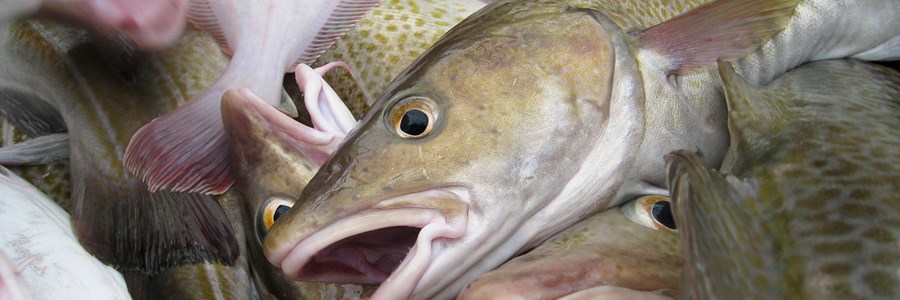Baltic Multiannual Plan: When political spinning becomes tantamount to slipping

Europêche, the leading trade body representing the fishing industry in Europe, have hit back at claims in an article published in the Guardian on Thursday 10th of March that states that a leaked European Commission plan concerning the Baltic Sea would open the gates to overfishing. The article claims that that cod in the Baltic may become extinct and that some fish stocks are in such a poor condition, that scientists are even unable to carry out a proper evaluation.
The article also quotes Pew Charitable Trust who claim that Western Baltic cod catches would break the current sustainable fishing limit by 60 % and that it would destroy the common fisheries goal of ending overfishing by 2020. The article also alleged that the plan would put higher pressure on fish stocks than is legally allowed thus inferring that the European Commission is proposing illegal regulations.
The fishing body argues that when the word 'overfishing' is used, it refers to fisheries above the maximum sustainable yield (MSY) and is something completely different from sustainability; it is a theory for economic optimisation and has no relevance for stock protection. Many of the exploited stocks in Northern Europe are currently fished at MSY and more enter the realm annually – in very good time to meet the 2020 target.
Furthermore, they argue that the plan is not 'leaked' since it has been a part of Ms. Engstöms portfolio since October of 2014. During this period, a great number of people have worked with the plan and arguments of its details have been discussed by people with an interest in the Baltic fisheries. Green MEPs have consistently tried to use the draft plan as a platform for reopening a discussion they lost when the CFP was agreed on in 2013.
Danish Member of Europêche, Michael Andersen, responded to the claims: "Whilst the legal aspects of managing fisheries are of significant importance, fishing is much more than biology. For most people, 'overfishing' means that the fishery is taking more fish than is estimated to be sustainable. It is important to point out here that for the great majority of fish stocks in the Northern parts of Europe (and certainly in the Baltic Sea), the current level of fishing is within what scientists in ICES estimate as being 'safe biological limits'."
Europêche go on to state that it is quite simply untrue when Linnéa Engström says that the stocks are in such a bad condition that scientist cannot do a proper evaluation; the lack of proper evaluation is caused by exceptional biological conditions and has nothing whatsoever to do with the status of the stock – which incidentally, is in a much better state than is was ten years ago.
Andersen added: "Pew’s allegation that the new plan would break the current sustainable fishing limit by 60 %, is obviously ridiculous given that the sustainable limit for this stock represents the figure 0,6 and the proposed target maximum value is 0,45. According to ICES, the scientific body, a fishery in a range around the theoretical point value for MSY, will not endanger the stocks – as long as the fishery does not exceed the precautionary limit. Consequently, on request, ICES has suggested ranges for MSY that are compatible with the agreed policy of the European Community. These are the scientifically sound figures that the Commission have suggested to use in the Baltic plan."
Fisheries management is the attempt to regulate the effects of a specific human activity on fish stocks, which are affected by many other factors in a rather chaotic environment so it seems only fair to apply a management that has some flexibility towards changes that are beyond human control. This will of course have to take place within a precautionary frameworks since nature is not well suited for strict regulations and spreadsheets.
President of Europêche, Javier Garat, concluded: "The European fishing industry provides jobs for 80.000 people and feeds a lot more. We cannot in Europe be so protective that we underexploit our resources and compensate by importing the necessary food. We have perhaps been fishing above sustainable limits for a period in the past, but the ship has turned, and scientists from ICES have documented that by saying stocks have reacted positively and that we are observing growing trends in stock sizes for most of the commercially important stocks. We cannot stand by and watch our industry’s reputation be unfairly trashed like this and it is important that the press reflect the facts and not selective quotation, misrepresentation and blatant untruths."
END
Europêche represents the fisheries sector in Europe. Currently, the Association comprises 14 national organisations of fishing enterprises from the following 9 EU Member States: DE, DK, ES, FR, IT, MT, NL, PL, UK.
Press contacts:
Kathryn Stack, Managing Director of Europêche: +32.2.230.48.48 kathryn.stack@europeche
Sources: Europeche
Attachments:
Tags: Baltic, multiannual plan, Cod, MSY, ICES, PEW, overfishing